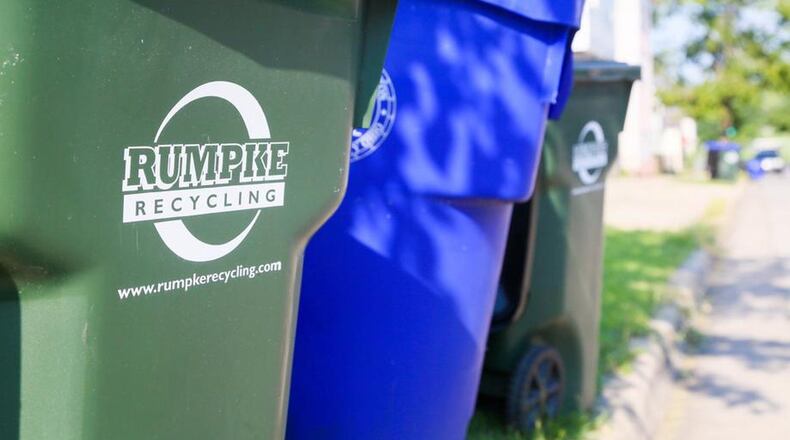Miamisburg has been contracting with Rumpke since 2013. Services covered under that contract include trash collection, hauling and disposal, recycling, collection and processing, pickup and disposal of bulk items and yard waste, and servicing the city dumpsters and recycling containers, said Valerie Griffin, Miamisburg’s public works director.
The city’s current 5-year contract with the company expires at the end of the year.
A new contract was awarded in September, one that will see the city paying Rumpke an increase per residential unit, going from $13.27 a month to $16.64 a month starting in January, then increasing to $17.70 in 2024, $18.83 in 2025, $20.04 in 2026 and $21.33 in 2027.
“You can see that the price has gone from a little bit of a subsidy by the city to a greater one with a new contract,” Griffin told city council. “All of these prices are attributed to fuel costs, labor and equipment.”
In addition, the service industry has had more difficulty getting trash trucks and meeting new EPA regulations, dealing with increasing diesel prices and other economic challenges, she said.
“So with the rising cost of the trash and recycling services, it really called for a reevaluation of the rates that we’re charging so that the city can continue to provide these services,” Griffin said.
At the end of 2024, the city’s staff will reevaluate the possibility of further rate hikes, she said.
“We would come back and look at the data and see if we were able to keep the costs down with fuel charges or if fuel continues to rise, things like that,” Griffin said.
About the Author

